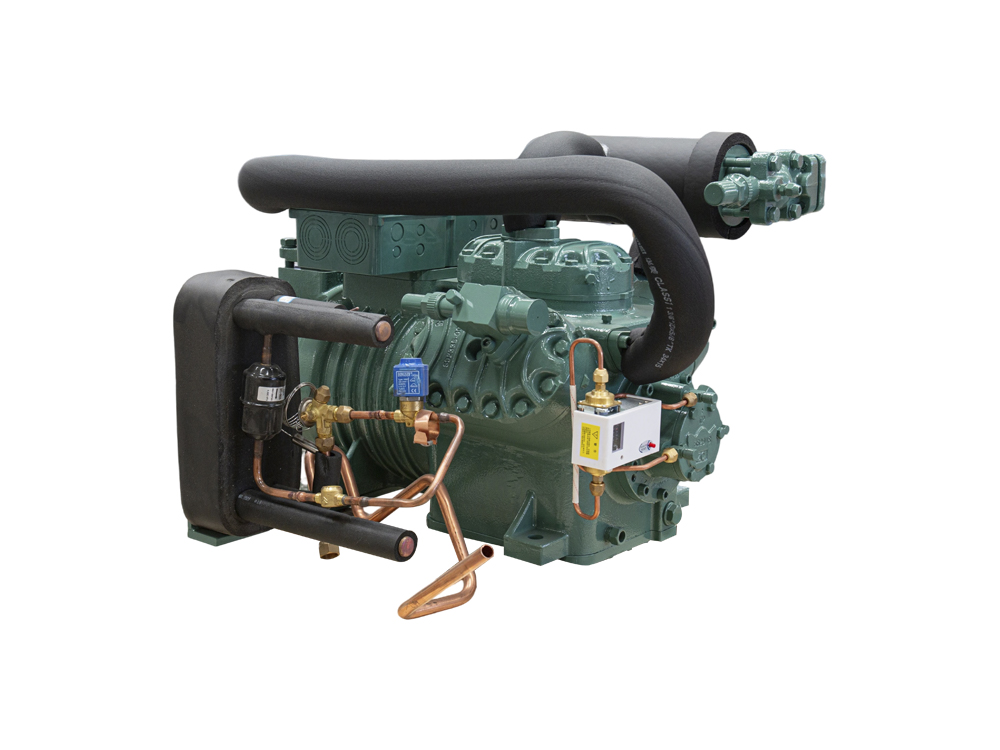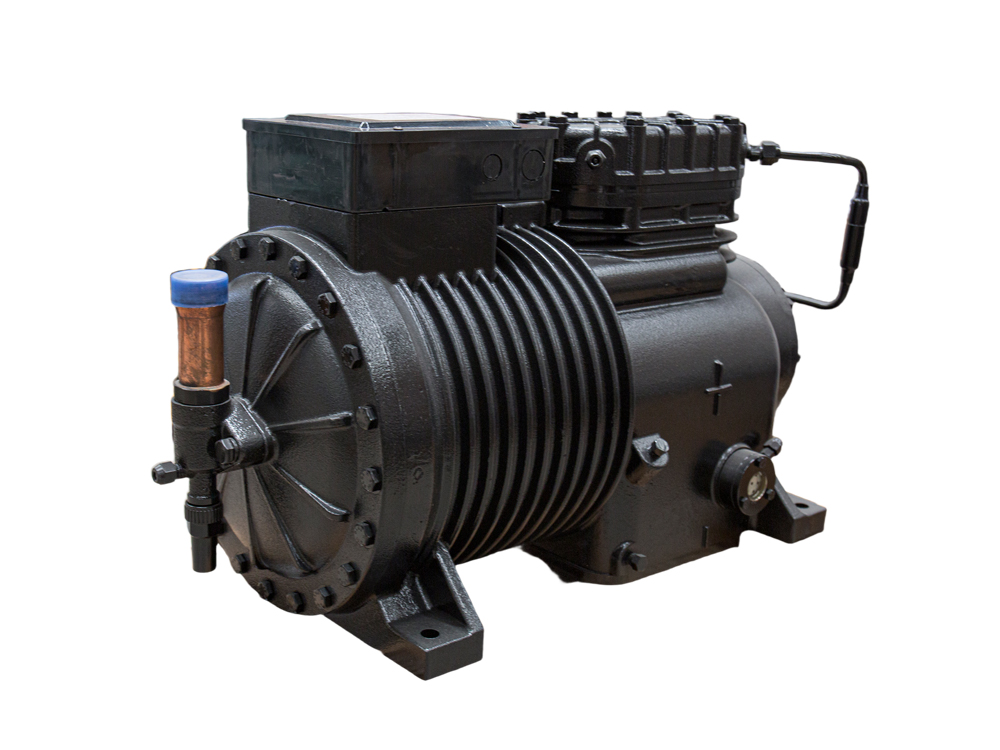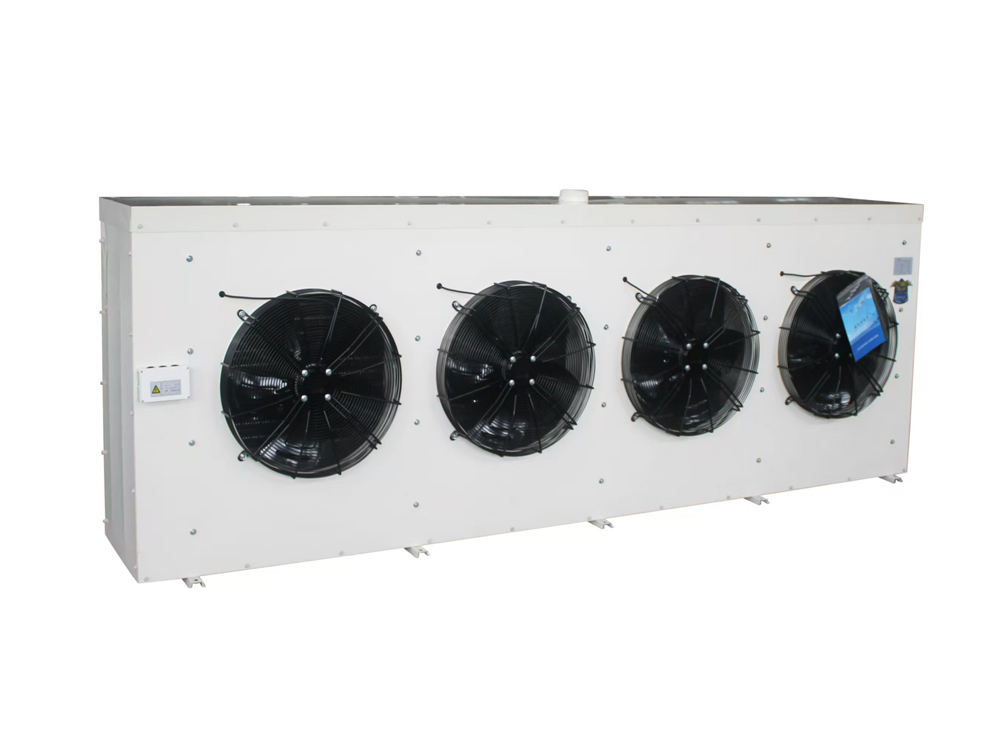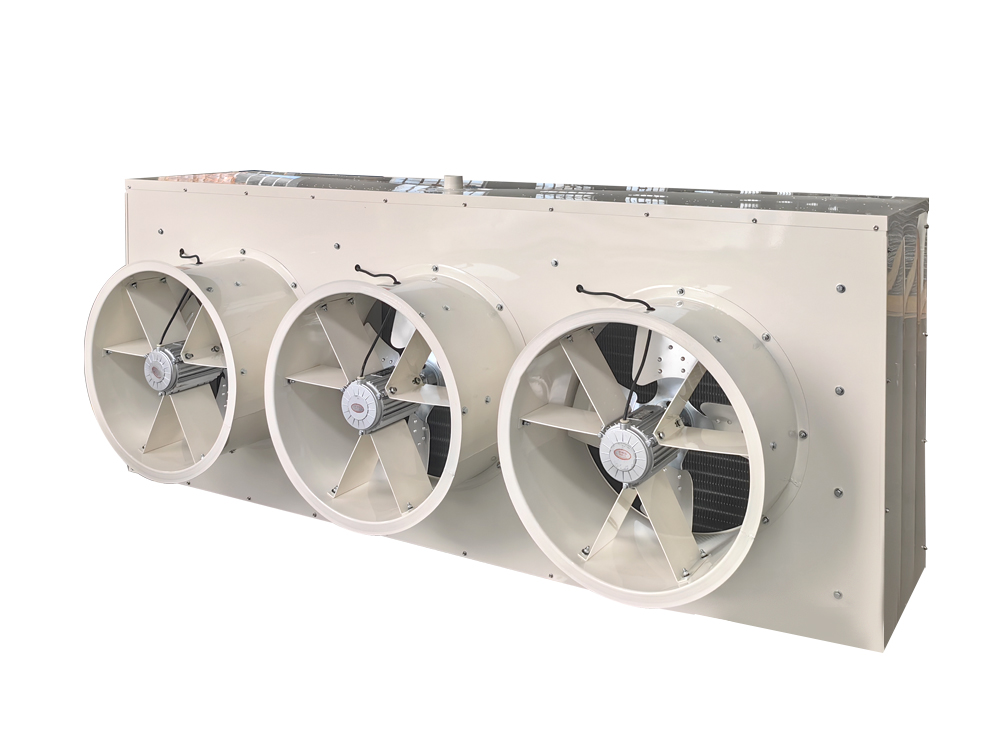Introduction
The global industrial gas market has been undergoing rapid transformation, driven by increasing energy efficiency requirements, technological innovations, and growing demand for high-pressure gas applications. Compressors play a critical role in ensuring reliable gas supply, controlling process flows, and maintaining system efficiency. Among the emerging technologies, the bipolar compressor has garnered significant attention due to its innovative design and ability to improve operational performance across a variety of industrial settings.
In recent years, the demand for energy-efficient and low-noise compressors has grown substantially. Industries such as chemical processing, metallurgy, and high-pressure gas distribution increasingly seek solutions that combine advanced mechanical design with intelligent control systems. The bipolar compressor, incorporating dual-stage compression, variable frequency drives (VFD), and sometimes IGBT-based control, offers distinct advantages over traditional single-stage screw compressors.
Bipolar Compressor Technology Overview
A bipolar compressor is a type of advanced screw compressor that integrates dual-stage compression with modern control mechanisms to achieve higher efficiency and performance. The term "bipolar" typically refers to the dual-stage or dual-pressure operation, allowing the compressor to handle gas at different pressures with greater energy efficiency. In some designs, IGBT-based electronic controls or permanent magnet variable frequency motors are incorporated, further enhancing energy savings and operational stability.
Key features of bipolar compressors include:
- High Energy Efficiency – By utilizing dual-stage compression and optimized motor controls, bipolar compressors reduce energy consumption compared to conventional single-stage screw compressors.
- Low Noise and Vibration – Advanced mechanical designs, precision-engineered rotors, and variable frequency drives contribute to quieter operation, making them suitable for industrial environments where noise reduction is important.
- Stable and Reliable Operation – Dual-stage design and intelligent control systems maintain consistent output pressure, improving process reliability for high-pressure gas supply or industrial gas treatment applications.
- Adaptability to Industrial Applications – Bipolar compressors can manage complex gas flows and pressures, supporting diverse processes such as chemical gas handling, high-pressure supply, and automated process flows.
Comparison with Traditional Single-Stage Compressors
| Feature | Single-Stage Screw Compressor | Bipolar Compressor |
|---|---|---|
| Compression Stages | 1 | 2 (dual-stage) |
| Energy Efficiency | Moderate | High |
| Noise Level | Medium | Low |
| Suitable Applications | General air compression | Industrial gas treatment, high-pressure gas supply, process flows |
| Control System | Basic | VFD or IGBT-based control |
| Maintenance Needs | Standard | Requires monitoring of dual-stage components and electronic controls |
Cleaning and Maintenance
Proper cleaning and maintenance are essential for ensuring the long-term performance and reliability of bipolar compressors. Regular upkeep not only prolongs the lifespan of the equipment but also maintains energy efficiency, noise control, and operational stability, which are key features of an energy-efficient bipolar screw compressor or an IGBT-based bipolar compressor for HVAC.
Daily Cleaning
- Inspect the compressor’s exterior and surrounding piping to remove dust and debris, ensuring adequate ventilation.
- Clean or replace intake filters regularly to maintain optimal air flow and prevent contamination that can reduce efficiency.
Lubrication and Mechanical Maintenance
- Use manufacturer-recommended lubricants and replace oil and oil filters on schedule to reduce wear on dual-stage rotors and other moving components.
- Monitor lubrication and cooling systems to prevent overheating, ensuring that the dual-stage bipolar compressor technology operates at peak efficiency.
Electrical and Control System Checks
- Inspect electrical connections, variable frequency drives, and IGBT modules for proper operation.
- Monitor performance indicators such as vibration, pressure consistency, and noise levels to detect potential issues early, maintaining the advantages of a low-noise bipolar compressor with variable frequency drive.
Application Considerations
Bipolar compressors are commonly used in industrial gas treatment, high-pressure gas supply, and process flows. Regular cleaning and maintenance practices are especially critical in these environments, where process reliability and efficiency directly impact production outcomes. Implementing a consistent maintenance routine ensures that the compressor delivers optimal performance across all operational scenarios.
Application Areas
Bipolar compressors have become a cornerstone in modern industrial gas systems due to their ability to efficiently handle complex processes. Their advanced dual-stage design, combined with energy-efficient operation and low-noise performance, makes them suitable for a wide range of industrial applications.
1. Industrial Gas Treatment
In chemical and processing industries, precise control of gas flow and pressure is critical. Bipolar compressors ensure stable compression of gases, supporting purification, separation, and storage processes. Their energy-efficient operation reduces operational costs, while dual-stage compression maintains consistent output for sensitive industrial applications.
2. High-Pressure Gas Supply
Industries such as metallurgy, petrochemical production, and high-pressure gas distribution rely on compressors to supply gas at precise pressures. The dual-stage bipolar compressor technology allows for gradual compression with higher efficiency, ensuring safe and stable high-pressure gas delivery. Integration with IGBT-based controls or variable frequency drives further enhances performance while minimizing energy consumption.
3. Process Flows
Automated manufacturing and chemical processes often require continuous, stable gas flow. Bipolar compressors adapt to fluctuating demand without compromising efficiency or output quality. Their low-noise operation and reduced vibration levels make them ideal for facilities where both performance and environmental considerations are critical.
4. Industrial Benefits
- Enhanced energy savings with energy-efficient bipolar screw compressors
- Consistent high-pressure supply for critical industrial processes
- Reduced operational noise through low-noise bipolar compressors with variable frequency drive
- Long-term reliability and reduced maintenance requirements, supporting high operational uptime
By combining these features, bipolar compressors support complex industrial workflows, improve productivity, and align with modern sustainability initiatives. Their applications extend beyond standard air compression to sophisticated industrial gas systems requiring precision, efficiency, and reliability.
Market Trends and Competitive Analysis
The global industrial gas compressor market has experienced steady growth in recent years, driven by the rising demand for high-pressure gas supply, industrial gas treatment, and energy-efficient solutions. Bipolar compressors have emerged as a key technology, capturing the attention of industries seeking both performance and sustainability.
1. Global Market Overview
Market research indicates that the demand for dual-stage, energy-efficient compressors is increasing, particularly in chemical, petrochemical, and metallurgical sectors. Companies are prioritizing compressors that offer lower operating costs, reduced energy consumption, and high reliability. The integration of dual-stage bipolar compressor technology and IGBT-based control systems provides a competitive edge in these markets.
2. Technology Trends
- Variable Frequency Drives (VFD): VFD integration allows compressors to adjust output according to demand, improving energy efficiency and reducing wear.
- Permanent Magnet Motors: The use of permanent magnet variable frequency motors enhances performance while minimizing energy losses.
- Digital Monitoring and Smart Controls: Real-time monitoring systems help predict maintenance needs, optimize performance, and ensure process stability.
3. Competitive Landscape
The industrial compressor market is highly competitive, with numerous domestic and international players offering similar technologies. Key differentiators include:
- Energy efficiency ratings and certifications
- Noise reduction capabilities (low-noise bipolar compressors with variable frequency drive)
- Reliability and maintenance requirements
- Integration with automation and industrial IoT systems
4. Keyword Integration in Industry Context
High-traffic keywords such as energy-efficient bipolar screw compressor, dual-stage bipolar compressor technology, and IGBT-based bipolar compressor for HVAC reflect the primary concerns of end users and engineers in the selection process. These trends indicate that content and marketing strategies focusing on technical performance, energy savings, and operational reliability are most likely to resonate with the target audience.
By aligning technological innovation with market demands, bipolar compressors are positioned to dominate industrial applications that require efficiency, precision, and sustainability
Technical Challenges and Innovation Directions
Despite their advantages, bipolar compressors face several technical challenges that require ongoing innovation to maximize efficiency, reliability, and adaptability in industrial applications.
1. Dual-Stage Compression Challenges
The dual-stage design of bipolar compressors introduces complexity in rotor synchronization, pressure balancing, and thermal management. Engineers must carefully design the compression stages to minimize energy losses and avoid mechanical stress that could lead to premature wear. Achieving stable operation across varying load conditions remains a critical focus area for innovation.
2. Control System Optimization
Modern bipolar compressors increasingly rely on IGBT-based control systems and variable frequency drives (VFD) to regulate motor speed and pressure output. Optimizing these systems involves precise algorithms that adapt to fluctuating process demands while maintaining efficiency. Real-time monitoring and predictive maintenance tools help anticipate issues before they affect performance, ensuring continuous operation in demanding industrial settings.
3. Energy Efficiency and Environmental Requirements
With global emphasis on sustainability, bipolar compressors must meet stringent energy efficiency standards. Integrating permanent magnet motors, VFDs, and optimized rotor geometries allows for significant energy savings. Furthermore, reducing emissions associated with compressed gas systems and minimizing operational noise contributes to compliance with environmental regulations and workplace safety standards.
4. Noise Reduction and Maintenance Accessibility
Low-noise operation is particularly important in environments where industrial activities are adjacent to office or laboratory spaces. Advanced acoustic design, vibration damping, and enclosure improvements help achieve quiet performance. Additionally, ease of maintenance is crucial: modular designs, accessible lubrication systems, and clear diagnostic interfaces reduce downtime and ensure reliability over extended operational periods.
By addressing these technical challenges through innovative solutions, energy-efficient bipolar screw compressors and low-noise bipolar compressors with variable frequency drive continue to evolve, offering improved operational performance for industrial gas treatment, high-pressure gas supply, and process flows.
VII. User Guide and Selection Recommendations
Selecting the appropriate bipolar compressor for industrial applications requires careful consideration of several key factors to ensure optimal performance, energy efficiency, and long-term reliability.
1. Determine Required Power and Pressure
- Assess the total gas flow and pressure requirements of your system.
- For applications involving high-pressure gas supply, choose compressors with higher rated pressure and dual-stage compression to maintain efficiency.
- Match the compressor size to process demands to avoid underutilization or overloading, which can reduce lifespan and efficiency.
2. Evaluate Energy Efficiency and Control Systems
- Opt for energy-efficient bipolar screw compressors equipped with VFDs or IGBT-based controls to minimize energy consumption.
- Variable frequency drives allow the compressor to adjust output according to real-time demand, reducing operational costs while maintaining stable performance.
3. Consider Noise and Environmental Factors
- For environments sensitive to noise, choose low-noise bipolar compressors with variable frequency drive, which provide quiet operation without sacrificing performance.
- Consider ventilation, enclosure design, and maintenance access when installing the compressor to support noise reduction and ease of upkeep.
4. Assess Maintenance and Serviceability
- Check accessibility of lubrication and cooling systems, as well as diagnostic interfaces for monitoring operational health.
- Implement a regular maintenance schedule, including cleaning filters, checking electrical connections, and monitoring vibration and pressure stability, especially for dual-stage bipolar compressor technology.
5. Application Suitability
- Bipolar compressors are commonly applied in industrial gas treatment, high-pressure gas supply, and process flows.
- Match compressor specifications with your application needs, considering energy efficiency, output stability, and operational noise to maximize both performance and return on investment.
By following these guidelines, industrial operators can ensure that the selected bipolar compressor meets their process requirements while delivering reliable, efficient, and low-noise operation.
Conclusion
Bipolar compressors represent a significant advancement in industrial gas compression technology, combining dual-stage efficiency, low-noise operation, and intelligent control systems to meet the growing demands of modern industrial applications. Their ability to manage industrial gas treatment, high-pressure gas supply, and process flows with stable performance makes them a versatile choice for a variety of sectors, from chemical processing to metallurgical operations.
The integration of energy-efficient bipolar screw compressors, IGBT-based control systems, and variable frequency drives ensures optimized energy consumption, reduced operational noise, and improved reliability. These innovations address both environmental considerations and cost-efficiency, aligning with the global trend toward sustainable industrial practices.
Proper maintenance and cleaning further enhance the longevity and efficiency of bipolar compressors, while careful selection based on application requirements ensures maximum performance. By leveraging these technologies, industrial operators can achieve higher productivity, greater system reliability, and measurable energy savings.


 English
English русский
русский Español
Español



